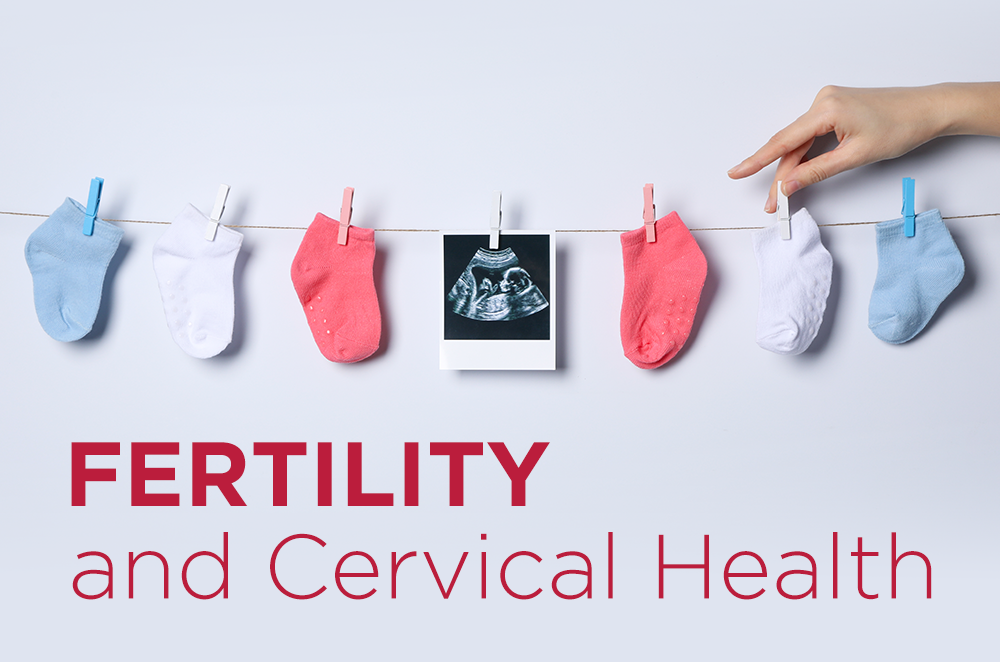Cervical health is a fundamental aspect of reproductive well-being, playing a pivotal role in fertility. Often overlooked, the cervix serves as the gateway to conception, influencing the chances of a successful pregnancy. In this blog post, we’ll explore the relationship between cervical health and fertility, shedding light on why it’s essential to prioritize this aspect of reproductive wellness.
Cervical Mucus and Fertility
One of the key factors in cervical health and fertility is cervical mucus. This fluid, produced by the cervix, varies in consistency and volume throughout the menstrual cycle. Around the time of ovulation, cervical mucus becomes more abundant, slippery, and stretchy, creating an optimal environment for sperm to travel through the reproductive tract. This fertile cervical mucus supports sperm survival and motility, enhancing the likelihood of fertilization.
Impact of Cervical Abnormalities on Fertility
Cervical abnormalities, such as infections, polyps, or structural issues, can significantly affect fertility. Infections, like sexually transmitted infections (STIs) or bacterial vaginosis, can damage cervical cells and impede the production of healthy cervical mucus. Polyps or structural abnormalities may obstruct the cervical canal, hindering the natural progression of sperm toward the egg.
Cervical Insufficiency and Pregnancy Loss
According to Yale Medicine, cervical insufficiency is a condition where the cervix begins to open prematurely during pregnancy and can result in pregnancy loss. A weakened cervix may not provide the necessary support to maintain a growing pregnancy. Timely detection and appropriate medical intervention are crucial for managing cervical insufficiency and reducing the risk of recurrent pregnancy loss.
Routine Screening and Preventive Measures
Regular gynecological check-ups, including Pap smears and screenings for sexually transmitted infections, are vital for maintaining cervical health. Early detection and treatment of any abnormalities can prevent potential complications and safeguard fertility. Additionally, adopting a healthy lifestyle, including maintaining a balanced diet, staying hydrated, and avoiding smoking and excessive alcohol consumption, can contribute to overall reproductive well-being.
Seeking Professional Guidance
Couples experiencing difficulty conceiving should consider consulting with a fertility specialist if concerns about cervical health arise. Fertility assessments, including tests to evaluate cervical function and overall reproductive health, can help identify underlying issues and guide appropriate interventions. If you are struggling to conceive, one of our providers would love to meet with you. Please reach out and make an appointment with MMG Obstetrics and Gynecology.
Cervical health is intricately linked to fertility, playing a critical role in the journey towards conception. Understanding the importance of a healthy cervix, recognizing the impact of cervical abnormalities, and prioritizing routine screenings are essential steps in promoting reproductive well-being. By acknowledging and addressing cervical health, individuals can enhance their chances of achieving a successful and healthy pregnancy. If you have questions or concerns regarding cervical health, explore our Women’s Health page and reach out to us. We are here to assist and provide support!
Resource:
https://www.yalemedicine.org/conditions/cervical-insufficiency
Disclaimer:
The Comanche County Memorial Hospital website does not provide specific medical advice for individual cases. Comanche County Memorial Hospital does not endorse any medical or professional services obtained through information provided on this site, articles on the site or any links on this site.
Use of the information obtained by the Comanche County Memorial Hospital website does not replace medical advice given by a qualified medical provider to meet the medical needs of our readers or others.
While content is frequently updated, medical information changes quickly. Information may be out of date, and/or contain inaccuracies or typographical errors. For questions or concerns, please contact us at contact@ccmhhealth.com.

